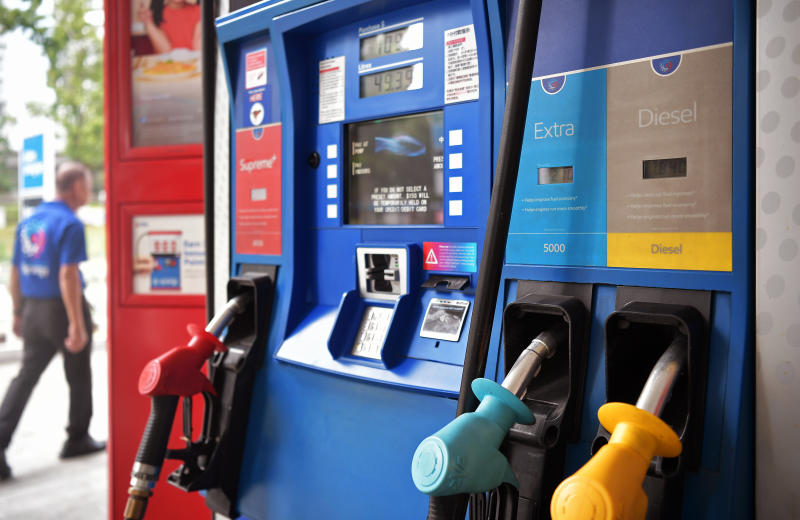Parliament: Diesel tax hike affects cabbies but creates healthier environment, says Baey Yam Keng
Sign up now: Get ST's newsletters delivered to your inbox

Finance Minister Heng Swee Keat had announced a doubling in excise duty on diesel fuel from 10 cents a litre to 20 cents, which took effect from Feb 18, 2019.
ST PHOTO: KUA CHEE SIONG
SINGAPORE - While the tax hike on diesel has affected businesses and cabbies, the move will help discourage usage of the fuel and create a better and healthier living environment, said Senior Parliamentary Secretary for Transport Baey Yam Keng.
Mr Baey noted that the land transport sector is the second-largest source of emissions in Singapore, and this has to be addressed as the land transport system expands.
To do so, the Government is also promoting commuting modes such as car-sharing, trains and personal mobility devices, managing the growth and use of vehicles, and encouraging the adoption of cleaner and more carbon-efficient vehicles, he said.
MPs Lee Bee Wah (Nee Soon GRC) and Gan Thiam Poh (Ang Mo Kio GRC) on Wednesday (Feb 27) raised concerns about the diesel tax hike, as they called for more support to mitigate the impact on cabbies and businesses.
Finance Minister Heng Swee Keat announced a doubling in excise duty on diesel fuel from 10 cents a litre to 20 cents last week. This took effect from Feb 18.
Speaking on day two of the Budget debate, Ms Lee said there was no lead time or grace period given, and many service providers which use diesel vehicles have lost money overnight.
She called for ComfortDelGro, the largest taxi operator here, to at least absorb part of the diesel tax hike.
Meanwhile, Mr Gan noted that certain heavy machinery and special purpose vehicles have no non-diesel alternatives in the market, and appealed for firms and operators using them to be exempted from the hike.
In his speech, Mr Baey listed several ways in which the Government is helping to cushion the impact of the diesel tax increase.
For taxis, this is in the form of an accompanying $850 reduction in the annual Special Tax. Mr Baey said he was glad that all taxi operators have pledged to pass on the entire savings to cabbies, in the form of rental reductions and, for some, Medisave top-ups.
"While this may not fully cover the cost increase faced by some drivers, it does go some way in reducing their overheads while nudging drivers to be more conscious of the impact of diesel consumption on the environment," Mr Baey said.
He added that ComfortDelGro cabbies who drive a diesel taxi which is five years old or more can get a $100 voucher if they convert to a hybrid taxi by the end of March 2019.
He urged other taxi operators to offer similar incentives and to add more non-diesel options.
"The rental rates of such hybrid taxis might be slightly higher, but they are more environmentally friendly and fuel-efficient, which could lead to savings for taxi drivers overall," said Mr Baey.
Addressing concerns of parents over school bus fares, Mr Baey said the Government is helping operators through a new road tax rebate scheme for all diesel buses, for a three-year period from August.
All diesel school buses, diesel private-hire buses and excursion buses ferrying schoolchildren will also get an additional cash rebate for a three-year period from August, he added.
Mr Ang Hin Kee (Ang Mo Kio GRC) said after Wednesday's Parliament sitting that he hoped more taxi firms would take up Mr Baey's call to support cabbies.
But Mr Ang, who is also the National Taxi Association's executive adviser, told The Straits Times that rebates like the $100 voucher from ComfortDelGro offer only mild reprieve to taxi drivers. This is because the daily rental rate for a hybrid taxi is $120, compared to $100 for a diesel version, he said.
"Taxi firms should look into lowering the rental rates. If not, cabbies may not switch to hybrid taxis, and instead clock longer hours and distances on their diesel cabs to cover the higher diesel rates. This runs contrary to the intention of the tax hike," Mr Ang said.


